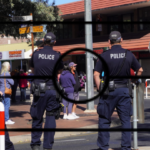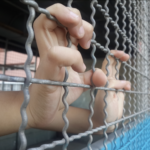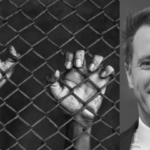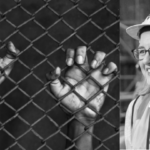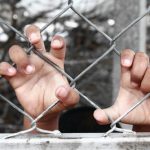Country Liberals to Lower the Excessively Low Bar on Punishing Indigenous Kids
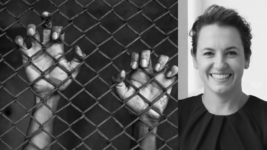
The Country Liberal Party (CLP) landslide victory in last Saturday’s Northern Territory election brings with it a type of foreboding, that, while not of the same global magnitude that a 2024 Trump US election victory would bring, but it is similar in its ominous nature, especially for Territorians.
Elections have go-to issues or matters of heightened concern for the community. And at the last federal election, climate was one major issue, which federal Labor has since silenced, yet hardly solved, while in the NT for 2024, the main issue was “community safety”, in terms of tackling crime.
On taking out the election, newly-minted Country Liberal NT chief minister Lia Finocchiaro told the press on Monday that she “will also hold the police portfolio, so that community safety is the number one priority of our government and our police know that they will be supported”.
Community safety, however, is not usually the chief priority of a party that has just taken office in this country, and when it is a priority issue, pollies usually speak about it being a “tough on crime” policy, but in a complete reversal of what’s expected down here, in the NT, this language is toned down.
But the truth is, in the Top End, 26 percent of the population is made up of First Peoples, and this quarter of the NT society are much more prone to become the object of the attention of NT police, and as follows Indigenous people in the NT account for the overwhelming majority of inmates.
Prisons filled with First Peoples
“How good is it to be Territorian tonight,” Finocchiaro said in opening her victory speech last Saturday, and she added that the CLP win was going to bring an end to “two decades of escalating crime”, along with the “economy going backwards and the erosion of our once iconic lifestyle”.
“When I put my hand up to serve the people of the Northern Territory in 2012, I swore an oath to defend our freedoms and fight for future generations, who deserve the opportunities and lifestyle that I had growing up here,” the Country Liberal leader set out.
The NT has the highest rate of imprisonment on the continent. This is substantially so. In terms of the general populace in March, the NT imprisonment rate was 1,153 individuals per 100,000 persons, whereas for Aboriginal and Torres Strait Islander people specifically, it was at 3,526 per 100,000.
According to the ABS, in March this year, 88 percent of the 2,219 adult prisoners locked up in Northern Territory correctional facilities, or 1,955 of them, were First Nations people, and as for kids inside, 91 percent were Aboriginal, or 32 out of a total of 35.
So, in having law and order as a front and centre issue, Territory Labor and the Country Liberals appear to have been contesting an election with the key focus being which party can crack down on First Nations youth crime the hardest.
“The great people of the Northern Territory have spoken loud and clear,” Finocchiaro, who has been a prominent figure in NT politics during the last decade of debate over the jurisdiction’s treatment of youth offenders.
“They want to live in a safe community where our police are supported with better laws as we address the root causes of crime”.
The incarceration territory
The new Country Liberal NT administration is set to drop the age of criminal responsibility back down from 12 to 10 years old, after having been the first jurisdiction in the nation to raise the age at which point the criminal justice system can determine whether to imprison a child offender.
The raising reform was recommended by the Royal Commission into the Protection and Detention of Children in the Northern Territory, which was an inquiry held in response to the 2016 exposure of abuse and torture of detainees at the NT’s two child prisons: the Don Dale and Alice Springs facilities.
The CLP also proposes enacting wanding laws, which permit police officers to run metal detectors over civilians’ bodies to check for knifes, as was recently done in NSW, and the party is also going to crack down on public drinking, which usually involves targeting a society’s most vulnerable.
The new NT chief minister is further keen to enact what’s referred to locally as Declan’s Law, which will see a presumption against bail for serious violent offenders.
In a further sign that she’s contemplating turning the already overpoliced jurisdiction into a police territory, Finocchiaro made a show of meeting with NT police commissioner Michael Murphy on Sunday, and the head of the territory’s police union Nathan Finn the following day.
The National Network of Incarcerated and Formerly Incarcerated Women and Girls warned prior to last weekend’s election that the changes that were on the agenda for the CLP were highly problematic, but it further insisted that Territory Labor wasn’t offering anything more progressive.
The network also warned that both parties had the building of two new women’s prisons on their agendas, so these will be progressing under the Country Liberals. And in order to make way for one, Darwin was forced to close it’s only residential rehabilitation facility, which included a detox centre.
A national project
“The CLP’s promise to reintroduce spit hoods to watch houses and children’s prisons is a dangerous and regressive step,” said Debbie Kilroy of the National Network last week. “It is well established that spit hoods are lethal”.
Indeed, a photo of a young Aboriginal boy strapped to a chair by “youth justice officers” and wearing a spit hood was the most enduring image to come out of the 2016 Don Dale Youth Detention Centre scandal, which led to a mass civil society campaign for reform and to raise the age.
However, this national reckoning, which further saw the nation sign up for the OPCAT preventative system of detention centre inspections, seems to now be turning back towards the pre-2016 push for an overhaul of the way children, overwhelming First Nations kids, are treated in this nation’s prisons.
Queensland suspended its Human Rights Act last year to ensure tougher bail laws for kids and to allow them to be locked up in adult watchhouses, and this year, has seen NSW roll out new tough-on-youth-crime laws and refuse to raise the age, while Victoria is toughening youth bail laws.
So, it would appear that not only does Country Liberal taking office in the Northern Territory signal a crackdown on youth crime for Territorians in general, but it also appears to be the signature move of a national trend, which is all about targeting First Nations youth for law enforcement attention.


